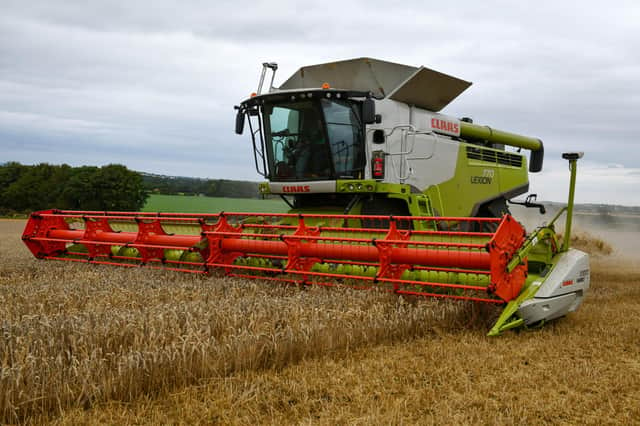Farming: ‘No time’ to set up new grain co-op to replace Inglis & Son


However cereal growers, especially across the Lothians and Borders, remain hopeful that the facilities will be purchased by a commercial organisation capable of having them up and running by then.
The loss of even part of the estimated 200,000 tonnes capacity at sites at Tranent, Melrose, Morpeth and Errol could have significant negative impacts on the often difficult logistics during the Scottish grain harvest.
Advertisement
Hide AdAdvertisement
Hide AdWith a closing date already set by the selling agents, Robin Barron, general manager of the long established co-operative group, East of Scotland Farmers, told growers that setting up a new co-operative on that timescale was unrealistic.
Speaking at an NFUS webinar to outline the role which co-operatives could play in tackling imbalance in the supply chain he also indicated that it would be difficult for an established co-operative to buy such a site and get it operational in time for this year’s harvest:
“It wouldn’t just be a matter of buying the site, the equipment would need to be readied, suitable manpower found and contracts for marketing the grain organised.”
He said that the best approach might be to see who bought the plants and then try to set up an arrangement on a partnership basis for future years.
Jim Booth head of co-operative development with SAOS, who had laid out the benefits of farmers taking formalised collaborative action agreed, however, that it tended to take upwards of a year to ensure that a co-op venture was set up on a sound basis:
“Business plans need to be drawn up, feasibility studies carried out, people need to come together to set up the members’ agreement and agree to good governance principles.”
“The last thing anyone would want to do would be to set up a group in a hurry and then see it fail.”
However, while admitting that farmer co-op groups had met with mixed fortunes across the years, he refuted suggestions that this type of business structure was more prone to failure:
Advertisement
Hide AdAdvertisement
Hide Ad“In fact HMRC figures actually show that co-operative ventures have about half the failure rates of other business start up models.”
Booth said that it was widely recognised that consolidation across the agri-food sector had made farmers ever more reliant on a handful of suppliers and buyers: “And this has exacerbated power imbalances, allowing costs to be shifted onto farmers, squeezing their incomes, eroding their autonomy and leaving them vulnerable”.
He said that as an alternative to the advances of multinational conglomerates, and with a commitment to local services and infrastructure, co-operative groups offered an option which could support rural communities and family farms.
Meanwhile, NFU Scotland is offering free initial advice to members who are creditors in the Inglis administration, advising them to make contact with details by tomorrow afternoon.
Comments
Want to join the conversation? Please or to comment on this article.